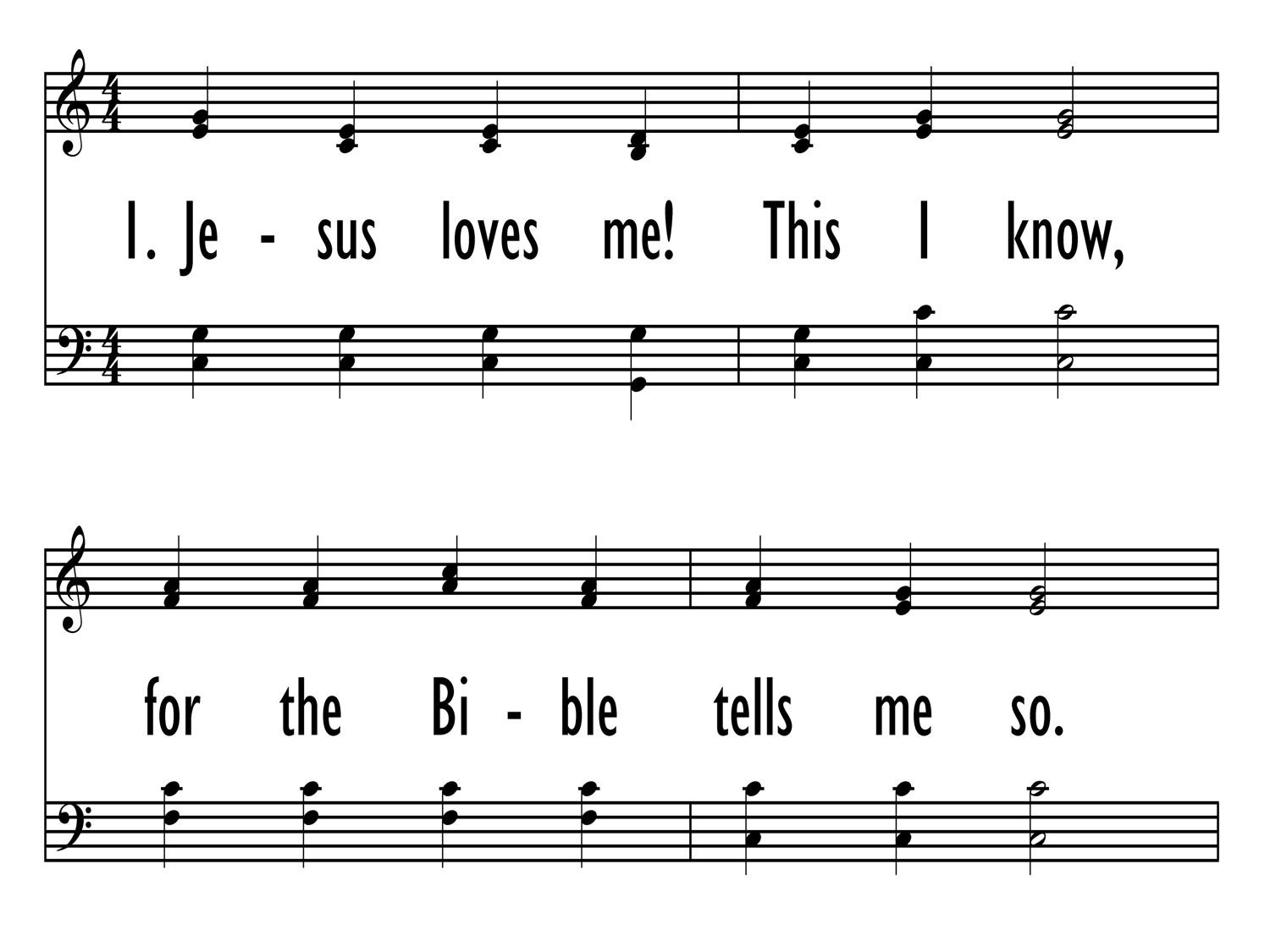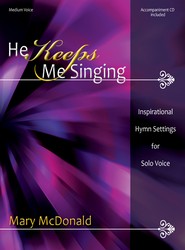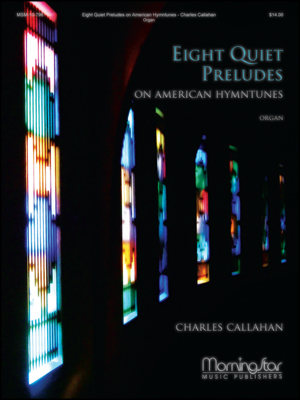- |
User Links
Jesus Loves Me
Hymn Information
- First Line
- Jesus loves me! This I know
- Author (st. 1-2)
- Anna B. Warner (1859)
- Author (st. 3)
- David R. McGuire (1971)
- Tune Name
- JESUS LOVES ME
- Composer
- William B. Bradbury (1861)
- Topic
- Children · Children's Hymns · Jesus Christ: Love · Word of God · Elements of Worship: Forgiviness and Grace
Copyright Information
- Text Copyright
- Public Domain
- Tune Copyright
- Public Domain
- Reprint/Projection Information
- Words and Music: The Words and Music are in the Public Domain; you do not need permission to project or reprint the Words and Music.
Full Text
Scripture References
Thematically related:
- st. 1 = ·
- st. 2 =
- st. 3 = · · ·
Further Reflections on Scripture References
“Jesus loves me” weaves together some of the most basic truths of the childlike Christian s experience with the Lord: Jesus loves me, Jesus saves me, and Jesus invites me to come to him. The refrain simply emphasizes that we know Jesus' love from the Bible.
Bert Polman, Psalter Hymnal Handbook
Confessions and Statements of Faith References
Further Reflections on Confessions and Statements of Faith References
The Catechism says that those who know Christ’s forgiveness are “to thank God for such deliverance” (Heidelberg Catechism, Lord’s Day 1, Question and Answer 2). As a result, “With our whole lives we may show that we are thankful to God for his benefits, so that he may be praised through us, and that we may be assured of our faith by its fruits, and so that by our godly living our neighbors may be won over to Christ” (Heidelberg Catechism, Lord’s Day 32, Question and Answer 86).
Jesus Loves Me
Additional Prayers
Jesus Loves Me
Tune Information
- Name
- JESUS LOVES ME
- Key
- C Major
- Meter
- 7.7.7.7 refrain 5.5.5.6
Recordings
Jesus Loves Me
Hymn Story/Background
for the Bible tells me so.


 My Starred Hymns
My Starred Hymns






